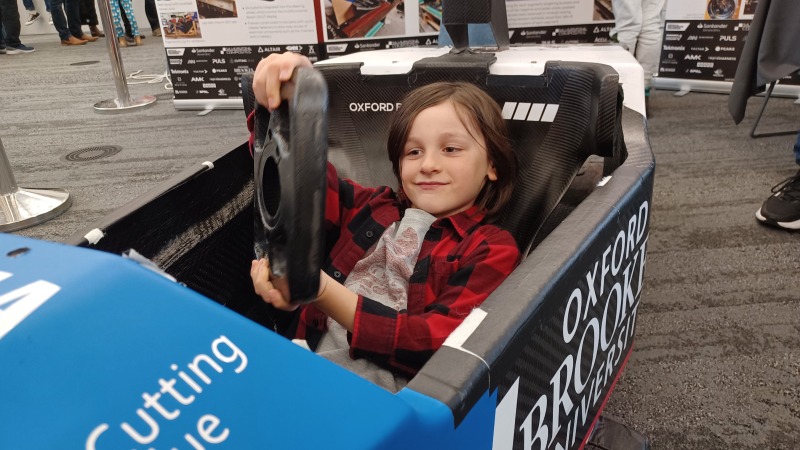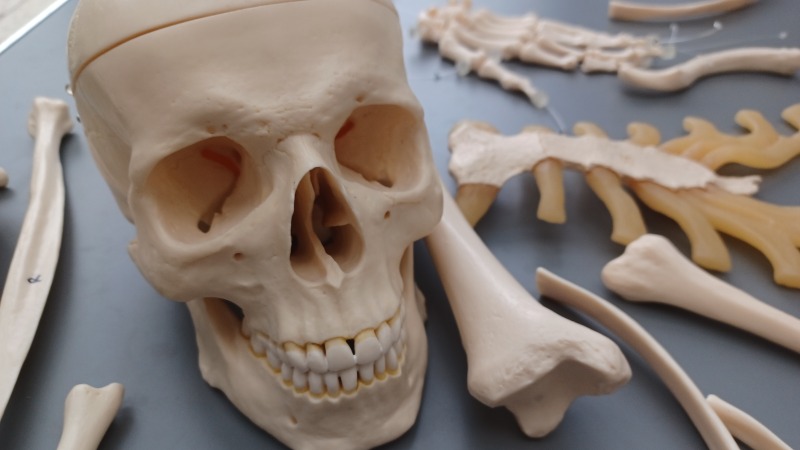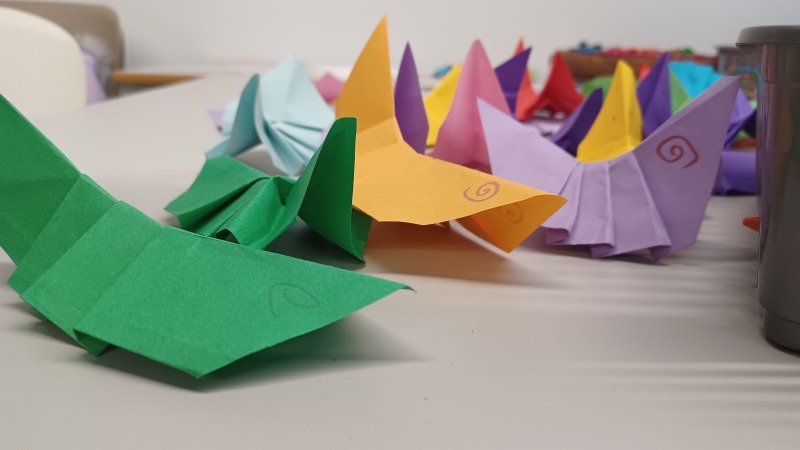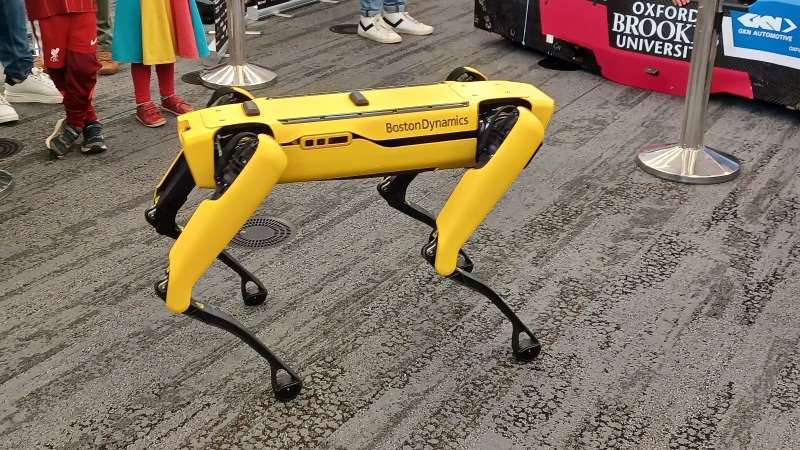Science Bazaar at Oxford Brookes University is declared a huge success

Thousands of children experienced robots, volcanoes, crocodiles and much more at the Oxford Brookes University Science Bazaar.
More than 3,200 visitors flocked to the campus in Headington for a day of science-related events and activities on Saturday 18 February.
For the first time the day began with a two-hour autism-friendly session, allowing children the chance to enjoy the activities and stalls without the hustle and bustle of the crowds that were to come later.

Visitor Joanna Hulbert said her autistic son had struggled at previous Science Bazaars because of the crowds. She said: “I was impressed with the quieter morning. A lot of thought had gone into it and we received a visual schedule with pictures of everyone involved before we came. It showed us all of the things to expect that might make us anxious.
“I came with my son before Covid-19 and found the event difficult to access because it was so busy. This morning was so nice and quiet and we felt well-prepared. I was impressed with whoever had done the work to make this accessible for people with autism.”

Among the stalls and activities were cuddly toys representing viruses – Covid-19, E.coli and the common cold – along with microscopic images of cells and proteins. Oxford University also brought pieces of volcanic rock and a heat-resistant suit that children and adults enjoyed wearing while their photographs were taken. Spy pens and methods for analysing ancient texts and pictures were brought along by the Oxford Centre for Methodism and Church History.
In the Tech Zone children tested the abilities of a Toyota robot designed to help people with everyday tasks. Youngsters met Spot the robot dog – a high-tech robot that can collect data and carry out structural analysis and much more in dangerous situations. Spot was voted the favourite bazaar activity by visitors. Children also got the chance to sit inside an electric racing car built by Oxford Brookes students.

The Oxford Brookes Physiotherapy Society set up a ‘bone box’ with life-size artificial pieces of a human body so children could assemble a skeleton. Andy Lewers, Vice-President of the society, said: “I’ve brought a mystery box and kids put their hands inside and decipher what object is in there to test their sensation. We’ve also got some very popular crutch racing and a build-your-own lung activity to teach kids about their lungs.
“The highlight of the day was seeing how many children have interacted with the stalls and seeing them learn that physiotherapy isn’t just about bones and muscles, but that we treat a whole range of conditions, such as neurological and respiratory as well.”
Throughout the day children made Lego mosaics which were put together to make a large butterfly and took part in various Lego activities. A mini-beast hunt, the chance to learn about monkeys and meet a real baby crocodile were also part of the event.
Dr Ellie Beaman, Public and Community Engagement Coordinator, said: “It was a fantastic day with thousands of people exploring more than 30 activities across our Headington campus. It was great to see children interacting with staff and students from across Oxford Brookes as well as the University of Oxford, the Open University, the UK Centre for Ecology and Hydrology and the UK Atomic Energy Authority. The success of the day was a testament to the enthusiasm, creativity and hard work of everyone involved."
Photographs: Artificial human bones from the Physiotherapy Society, origami worms and Spot the robot dog.
